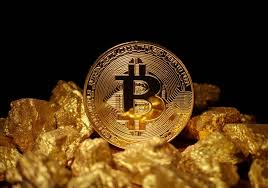BTC MILESTONE

Milestone: 17 million bitcoin in circulation April 28th, 2018 | Alexander Roos bitcoin
On April 26th, the 17-millionth Bitcoin was mined. Thus, a good 80 percent of all Bitcoins are minted. But how does the distribution of bitcoin work the same?
The peculiarity of the Bitcoins is that it is both digital and rare. Digital files, such as a Word document, can be copied as often as you like – the Bitcoin is different. The amount of all Bitcoins was already set by Satoshi Nakamoto before the Genesis block, the first Bitcoin block: 21 million. This limit has since been one of the most important attributes of Kryptowährung.
Nakamoto enabled the (seemingly) impossible: rarity in the Digital world – a digital good.
The reward for miner decreases with time
When Satoshi invented bitcoin, the peer to peer electronic cash system, he modeled the distribution of money in a good from the real world: gold. Gold and Bitcoin share the characteristic of rarity. Imagine that humanity discovers gold as a means of payment. Because this coin can now be used as money to buy and sell goods, it develops a demand and a value. It can either be purchased by selling its goods or services to the gold of others, or by promoting it from the ground.
Gold is on Earth. It is the remnants of gigantic supernovaes that fused atoms into gold and distributed in the universe. The gold on Earth, however, is finite. This means that the more gold is extracted from the ground, the less gold remains in the ground. Over time, less gold is found – until ultimately all gold has been brought to life and is in circulation. In other words, mining becomes more difficult and the "reward" is steadily diminishing.
17 million scratched, 4 million left
Now 17 million Bitcoins are in circulation. A difference between gold and Bitcoin: The number of Bitcoin is set in the computer code and thus public knowledge. Approximately every four years, the reward is halved. Currently, in April 2017, the reward for a block is 12.5 BTC.
The next million-step will take place in the year 2019. The final money supply will be reached only 2140.
The birth of the first Bitcoins is barely nine years back. At that time, new Bitcoin came into the ecosystem per new block 50. The next halving of the reward is likely to occur in March 2020. Then the block reward is "only" 6.25 BTC.
Through this bisecting mechanism, Bitcoin inherits the deflationary property of gold. The inflation rate is currently below 4 percent and will steadily fall until it drops to 0 percent – then when all Bitcoin are scratched. The miners then of course do not leave empty, but receive the transaction costs as a reward for the effort to secure the network.
BTC Echo
by and About Alexander Roos
Alexander Roos earned a Bachelor of Science degree in management, Philosophy & Economics from the Frankfurt School of Finance & Management. His bachelor thesis was about the fields of application and adaptation of Blockchain technology. Alex has been part of the BTC Echo team since 2018. Alex is particularly enthusiastic about pure, decentralized Kryptowährungen-in them he sees the reinvention of money through the free market. His main focus is privacy-coins.